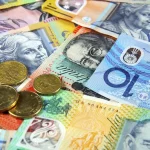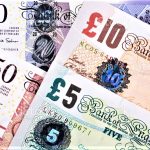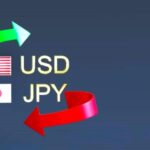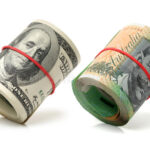Japanese yen remains under severe selling pressure despite the uncertainties surrounding the Bank of Japan’s rate move.
Japanese yen (JPY) fell against the dollar for the third day in a row, pushing the USDJPY pair above 152.00 for the first time since late July during the Asian session. The uncertainty about the Bank of Japan’s (BoJ) ability to raise interest rates further this year has been a major driver of the JPY’s recent decline since the beginning of the month.
Meanwhile, the most recent A drop below the 150.00 psychological threshold prompted some rhetorical intervention from Japanese officials, but it did nothing to provide any relief to the JPY bulls. Even the current risk-off atmosphere and persistent geopolitical risks resulting from the ongoing wars in the Middle East tensions, so far, have failed to lend any support to the safe-haven JPY.
USD rise sends the USDJPY pair to a nearly three-month high.
Meanwhile, speculations that the Federal Reserve (Fed) will decrease interest rates at a slower pace have fueled the recent rise in US Treasury bond yields to a three-month high and the current US Dollar (USD) gain to its highest level since early August. This suggests that the lower-yielding JPY will continue to fall, while the USDJPY pair will rise.
Daily Market Movers: Japanese Yen selling bias continues unabated despite intervention warnings.
The Japanese yen fell to its lowest level in over three months versus the US dollar as investors questioned the Bank of Japan’s plans to raise interest rates.
The JPY bears appear unfazed by Japanese authorities’ recent rhetorical interventions, following a drop below the critical 150.00 psychological level.
The likelihood of fewer Fed rate cuts and larger fiscal deficits following the US presidential election prompted a bond market selloff.
The yield on the benchmark 10-year US government bond jumps to levels not seen since July, sending the US dollar to its highest level since early August.
San Francisco Fed President Mary Daly stated that the economy is in better shape, inflation has decreased, and The labor economy has shifted to a more sustainable course.
The odds have shifted in favor of former President Donald Trump winning the US election next month, prompting worries about inflation-generating tariffs.
Hezbollah fired rockets at two facilities near Tel Aviv and a naval base west of Haifa on Tuesday.
As markets braced for Israel’s anticipated war on Iran, Hezbollah fired rockets at two facilities near Tel Aviv and a naval base west of Haifa on Tuesday.
Diplomatic attempts have so far failed to resolve the year-long crisis in the Middle East, dampening investors’ desire for riskier assets.
Traders now look to the release of the US Existing Home Sales for some impetus, but the focus remains on BoJ Governor Kazuo Ueda’s address at the IMF-hosted “Governors Talk”
The focus will next move to Tokyo consumer inflation on Friday. , which will have an impact on the JPY ahead of Japan’s general election on October 27 and the Bank of Japan’s October 31 meeting.








